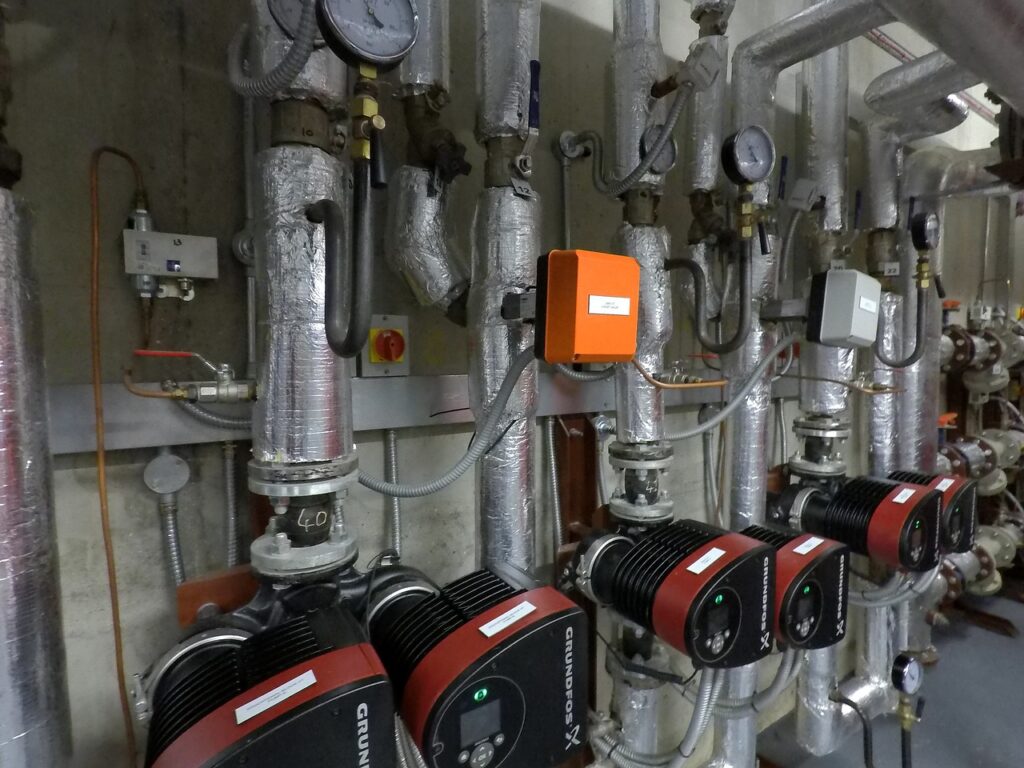In order to accelerate the expansion of district heating networks, Federal Economics Minister Robert Habeck (Greens) has agreed with business associations, municipal representatives and environmental and consumer advocates on looser climate protection targets for the corresponding systems. The target of producing at least half of the district heating of each individual network with renewable energies or through waste heat from 2030 onwards is now to apply to all networks overall, as the ministry announced on Monday after a joint district heating summit.
100,000 new flats in Germany to be connected to district heating network
In individual cases, this would allow for “flexible implementation depending on the local situation and the age of the existing systems”, according to the joint declaration adopted at the summit. In it, the participants also agreed on the goal of connecting 100,000 new dwellings in Germany to the district heating network every year and thus having them heated centrally. (Morgenpost: 12.06.23)

Climate protection dispute: breakthrough achieved on expansion of district heating networks
A dispute had previously erupted over climate protection targets for the expansion of district heating networks. According to the German Energy Agency (dena), district heating is currently still dominated by fossil fuels. Thus, the share of renewable energies in the district heating network was 22 per cent in 2021. Industry associations had previously rejected a mandatory 50 percent target for each individual network as unworkable. However, the goal of completely “decarbonising” the district heating networks by 2045 remains.
By this target year, the German government wants to increase the share of households that heat with district heating to one third. Currently, district heating is available in a good 14 percent of households.
Associations such as the Federal Association of District Heating Pipelines, the German Association of Cities, the German Federation of Trade Unions and the German Environmental Aid participated in the summit, which was jointly organised by Habeck and Federal Minister of Building Klara Geywitz (SPD). According to the joint statement of the participants, they also agreed at the meeting on Monday in Berlin, among other things, that a plan should be available as soon as possible. This plan should show in which areas the expansion of heating networks is planned within the next ten years.
District heating connection allows exemption from heating reform
This so-called heat planning is important against the background of the controversial reform of the Building Energy Act (GEG). This is because, according to the summit declaration, those who are guaranteed a district heating connection in the coming years will be “exempted from the obligation to install a heating system that meets the 65-percent requirement for renewable energies”. The two issues are thus closely intertwined within the framework of the heat transition.
The draft of the GEG, which is also controversial within the governing coalition, stipulates that new heating systems must be powered by 65 per cent renewable energies in the future. Traditional oil and gas heating systems can only achieve this in combination with a heat pump or a pellet heating system, for example. However, if a district heating connection is foreseeable, the replacement of old oil and gas boilers should continue to be possible until completion.
After the summit, Geywitz also rejected the demand for a possible obligation to purchase district heating if a connection to a district heating network is possible. In her view, there was no need to change anything about the existing state of freedom of choice, she told journalists. The municipal utilities had demanded such an obligation in order to ensure the economic viability of investments in district heating networks.
Call for action: Consumer protectors and experts call for protection against heat network monopolies
Consumer protectors called for further steps to protect property owners and tenants. In view of the monopoly position of heating network providers, regulation and a “reasonable control” of prices are needed, said the head of the Federation of German Consumer Organisations, Ramona Pop. Investment costs must also be “fairly distributed” and should not be borne by tenants alone.
The German Renewable Energy Federation (BEE) welcomed the summit declaration as a “necessary signal of departure”. District heating is an important component of a climate-friendly heat transition, and Germany has “a lot of catching up to do”.
AFP + Blackout-News





